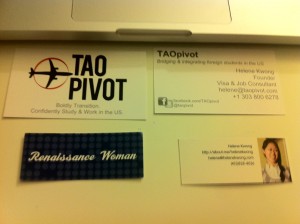Congratulations on landing a job! Do you feel ready to absorb everything about Company X and get to know your new co-workers?

Optimism aside, make sure you do not commit any of these mistakes on the first day (or maybe, ever? Then again, we’re all human…):
- Show up wearing clothing not matching the company’s dress code – You must have visited the office for your job interview. If you observed that everyone was wearing suits and ties, do not show up on the first day like a surfer. Be observant during that interview and, for your first day, err on the side of a little more dressy if you could not figure out the dress code at the interview. Unless you are going to work for a tech startup, it is best to wear nice slacks and blouse/button-down shirt for the first day.
- Wear a ton of perfume or cologne – You might accidentally douse yourself with perfume or cologne before getting to Company X because you feel nervous. Refrain from pouring on the scents! You do not want to be that one, super-scented person in the office and have everyone remember you for this in the long run. I would hope you do not normally toss on a ton of perfume for other occasions either.
- Using your smartphone anytime during the day – Unless you are receiving urgent calls from loved ones, there is no need for you to have your smartphone out at work at all. Leave your phone at your desk or in your briefcase/purse during meetings. And, even though lunch time would normally be a good time to check in with your phone, this is your first day: see if you can mingle with your co-workers at lunch to maximize networking opportunities.
- Talk crap about your personal life – You are trying to make a great first impression, right? Well, keep your personal life details out of the office/group lunch. At this point, nobody cares to know that you and your partner got into a fight last night, or that your friend backstabbed you. In general, keep personal stuff out of work life, even after the first day. You do not want to be known as the “poisonous” co-worker.
- Refuse asking questions to your supervisor about your duties/tasks at hand – Hopefully Company X has some training going for you on your first day. Even so, when there are times for you to get stuff done without supervision and you get into some confusion, do not hesitate to ask your supervisor to help you out. It is better to seek help instead of trying to fix the problem yourself and causing a big hullaballoo in the company database due to your fear of asking questions. Just. Ask.
- Use overly colloquial language – Unless your work environment is uber casual, keep yourself always at the professional language when speaking and writing. Keep your “hey GUYS this is da SHIT!” language for when you hang out with your buddies. Also, when sending emails to your supervisor or co-workers, double-check the grammar and spelling to make sure everything makes sense. You would be surprised at how many people fail at this simple task on a daily basis.
- Distract your co-worker with babble throughout the day – You will probably be busy training for your position anyway, but still, try to keep your small-talk down to a minimum. You do not need to tell your co-worker or your supervisor about the wonderful sandwich you ate while you were in Paris last week; bring that topic up another day when you figure out who is a foodie in the office.
- Sit idle when you are finished with your tasks for the moment – Seems like common sense to NOT do this, but this happens a lot. I know at a few of my first jobs I did feel a bit stuck on what to do next, but I made sure to ask my supervisors what to do next when I noticed my idleness. You can do the same with your supervisor: ask what needs to be completed next. If there is truly nothing for you to do at the moment, offer to help your co-workers out. Show the office that you are proactive with your work, even on day one.
And there you have it. Some of the situations above may seem ludicrous, but these things happen to many people on their first days and beyond. If you do end up committing one of these blunders, hold yourself accountable….but, also, do not be too hard on yourself. You may have a co-worker empathize with you considering you are new to Company X. So, cheer up and enjoy your time at Company X from day one and beyond.



